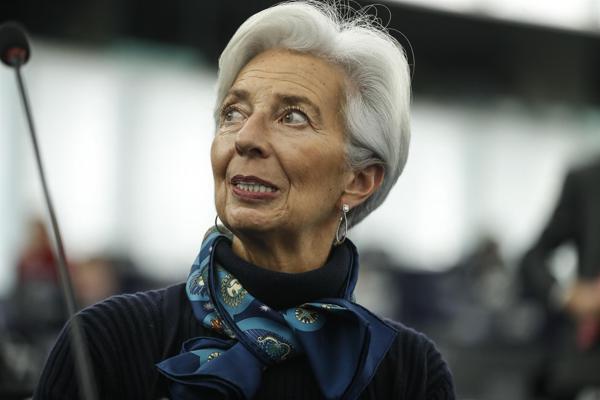Success of recovery plan 'crucial': Lagarde
PARIS - Agence France-Presse


European Central Bank (ECB) chief Christine Lagarde said on Oct. 18 it was “crucial” for the EU’s 750-billion-euro coronavirus recovery plan to succeed as new epidemic-busting measures weigh heavily on the bloc’s economy.
The money in the $881-billion fund must be disbursed as soon as possible, she told Le Monde newspaper.
“If [the money] is not targeted, if it disappears into the administrative machinery and does not reach down into the real economy to drive our countries toward the digital and green [economy], then we will have missed a historic opportunity to change direction,” Lagarde said in an interview with Le Monde published on the newspaper’s website.
The plan, unprecedented in its scope and commitments, was agreed by European Union leaders in July after several rounds of tough negotiations.
It has since been held up in the European Parliament by disputes over whether payments should be conditional on strict implementation of EU rights policies by member states such as Poland and Hungary.
Asked about concerns that the rescue funds may arrive too late, Lagarde said: “The European Commission’s objective is to be able to disburse the money at the beginning of 2021 and that absolutely has to be kept to.
“It is now up to the member states, who have to submit their recovery plans - some are already done - and up to the Commission, which must review them quickly,” said Lagarde, a former French finance minister and International Monetary Fund head.
“Political leaders also must move quickly,” she said.
“It is crucial that this exceptional plan, which broke important taboos [on the EU’s role] in several countries, should be a success,” Lagarde added.
The ECB predicts a drop of 8 percent in GDP for the eurozone in 2020, “but if the situation deteriorates that will obviously lower our forecast,” due to be revised in December, she said.
The ECB president added that the EU recovery plan, financed for the first time by joint debt, was estimated to have generated the equivalent of 1.3 percentage points of growth and to have saved a million jobs, while keeping private lending rates low.
